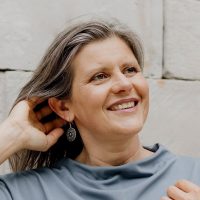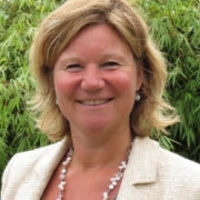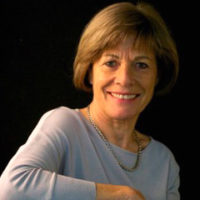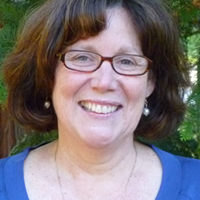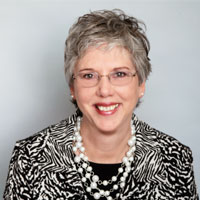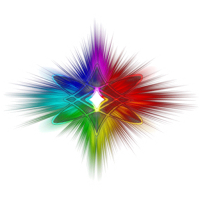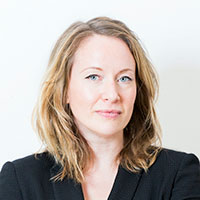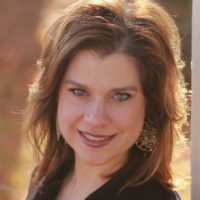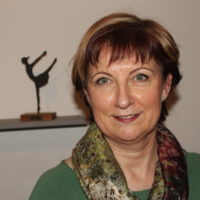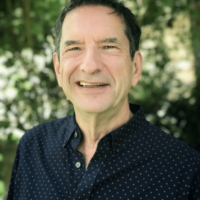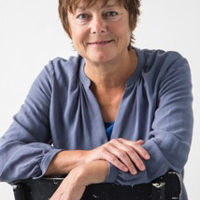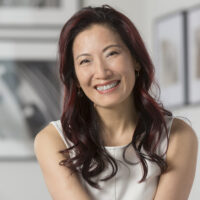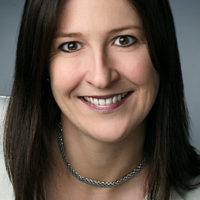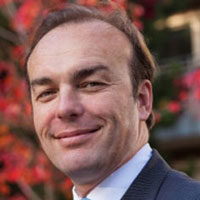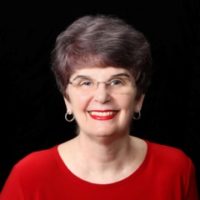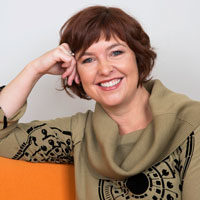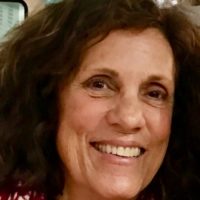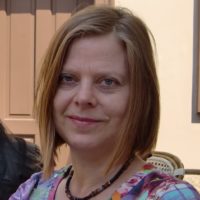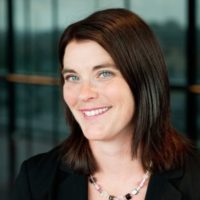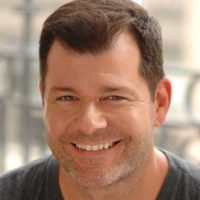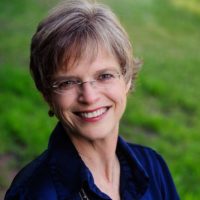Every now and then, something touches me so deeply that it will not leave me alone. In the last few weeks, it’s been American television journalist Anderson Cooper’s recent podcast series called All There Is. It’s tender, funny, piercing, rich, gentle, raw, loving, and real. Anderson breaks open the universal human experience of loss and grief as an inevitable part of a life—something that every single one of us will experience at least once. Through conversations with several famous and not-so-famous creatives, he takes away the stigma of grief and opens our hearts to its many gifts. Comedian Stephen Colbert described his life-long journey with grief as learning to love the thing you wish had not happened.
As Stephen Colbert talked about this, he spoke about his profound gratitude for all of life—the great things as well as the devastating. He wasn’t suggesting that you should love the fact that someone died or that some part of your life is gone. He was talking about his gratitude for who he has become, all he has learned, and how his capacity for compassion has grown through his journeys with grief. He says he has become a better human because of it all.
Having listened to the entire series twice, I knew I had to write about this podcast and its many riches. Not knowing where to begin or what to say, I’m choosing to let my heart write and see what shows up on the page. It’s part of my recent calling to explore feelings and experiences that we all have in common, yet don’t make space to talk about—space to touch and hold the deepest parts of our being. Our shared human experience of grief and our responses to it can establish common ground between us. When we don’t find or create spaces to talk about our shared life experiences, and especially the deep feelings associated with them, we miss the benefits of this common ground. There are pathways hidden within our shared experience that can help us find and understand one another’s hearts.
Anderson Cooper’s mother was Gloria Vanderbilt. He first got the idea of this podcast when he was cleaning out her two apartments last year. It had been two years since she had died. He was overwhelmed by the reality that everything he touched represented a story, not only of her extraordinary life, but also of his father’s and brother’s lives. His father died when Anderson was ten years old, his brother took his own life when Anderson was 23.
His mother had never been able to deal with his father’s and brother’s belongings after their deaths, which, in a way, also closed that door for Anderson. So now he was grieving three deaths, two of them from three and four decades ago. Going through their things, he was overwhelmed by the realization that he was now the only person left holding their stories—the only person who had known them all so intimately, the only person left to tell the stories of who they were as people and the relationships they shared.
As a part of his own grieving and healing process, he invited several people into conversation about how grief had shown up in their lives. What unfolds is a profound exploration of what it means to grieve, what it means to celebrate life while also mourning someone’s absence, and how they found their way through to the other side, allowing the process to take as long as it takes. And perhaps most profoundly, the clarity each of his guests shared that the person they grieved was still very present with them—that the relationship lived on.
We don’t make space with each other to talk about these things. It’s time.
The stories shared, the feelings unveiled, and the questions posed in this podcast stir my heart in the most poignant, warm, and tender ways. They reflect so much of my own experiences of grief and shine a light on aspects of my feelings that I hadn’t yet discovered.
I learned a long time ago that grief is a journey that has its own timeline and agenda, yet now I’m realizing more and more that grief doesn’t end. It evolves; it transforms; it takes on new dimensions and blossoms into new life. And as it does, it grows more tender; it gets gentler. It warms my heart instead of breaks my heart. At the same time, I’m aware that the deep recesses of my heart might never have welcomed that tender, gentle warmth if my heart had not first been broken open by my grief.
I never imagined such tender, gentle warmth. It brings a sense of profoundly deep love—not like being “in love,” but rather a sacred love that becomes a source for life, inspiration, creative expression, and even wisdom. I’ve come to treasure the ongoing relationships I embody with so many dear ones who no longer walk beside me. It’s reassuring, comforting, and even joyful. As I wrote last month about Endings and Beginnings, those relationships just keep evolving and unfolding in new ways. I don’t want those journeys to end. I savor those moments of connection across the veil.
Filmmaker Kirsten Johnson reflected on the slow and painful slipping away of both of her parents from dementia. She spoke about “anticipatory grief,” and brought two perspectives to the conversation that rang incredibly true to my own lived experience. The first:
You can observe life; you can only imagine death.
Kirsten Johnson
My father died in 2010 after a 16-year journey with cancer; my mother died in the middle of the COVID pandemic in 2020 after a long, slow decline. Thankfully, when it was time for her to go, the end came relatively quickly. Knowing for so long that the time would come when they would be gone, I anticipated what that might be like for years. Long before they were gone, I felt like I was already grieving them. However, in the days and weeks and years that followed their deaths, I’ve realized that my anticipatory grief gave me only a glimpse of what the grieving process would truly be. It has been both harder and easier than I ever expected, incredibly painful and infinitely gentler, fleeting and ever present.
The second perspective that got my attention:
Don’t let death trap you in terms of your relationship with someone who has died. That person is going to stay on in your life. They are not ending. And you can still get to know them more deeply.
Kirsten Johnson
The longer I live, the more I experience Life in all its splendor as well as its setbacks. And therefore, the more capacity I have for understanding who my parents were at different times in their lives. We can only see and understand others’ experiences and choices from where we are in our own lives at that moment. Yet the more we experience Life, and the more deeply we allow ourselves to feel, the more our awareness expands. And the more capacity we have for understanding who they were and what was happening inside of them in those moments.
For example, as I move deeper into my sage years, transitioning away from teaching and focusing more on mentoring and coaching, I understand that period in my parents’ lives on deeper levels. I’m still learning from them and about them. As we change, our capacity for understanding others changes.
Our relationships can keep evolving across the veil
A few months ago, I created a photo gallery of family members and special friends on the bookshelves in my study. All my dogs from my adult life are there as well. Many of the people and all of the dogs in the photos are no longer on this earth, yet I feel their presence with me every day. At the end of every morning meditation, I spend a few moments looking into their faces. I find such deep peace and joy each morning as I pause to feel the presence of each one with me for the day.
The photos of my parents and me span our lifetimes. Some days, a particular photo pulls me back in time and into the stories unfolding in our lives at the time that photo was taken. My appreciation and gratitude for who my parents were and are continues to grow. Our love remains strong and clear.
Reflecting on the many stories in this podcast takes me back to an homage I wrote to my parents the day after Christmas in 2021. It feels like a fitting way to close for now. If any part of this article speaks to you, take some time with Anderson Cooper’s All There Is podcast. It could be a beautiful winter gift to yourself.
How Could I Have Known?
An homage to my parents by Alan Seale
December 26, 2021
How could I have known
what it would truly be like
when you were both gone?
I had so many years to
imagine it, and I knew that
I would miss you terribly. Yet
how could I have known
that I might miss you forever?
Oh, I’m doing fine. When I’m
out in the world, no one would
know I was missing you.
Yet in quiet moments on my own,
even after all this time,
I catch myself thinking
it’s time to call, or that
I want to remember to
tell you about something.
And then I realize
once again that
there won’t be a phone call
today.
My life changed the moment each of you
crossed over. You each left me with
an instantaneous gift, filling me with
an aspect of you
exactly in that moment
that you left this world
for your new life in
another reality.
You each filled me with
some part of your life-force,
your presence. To this day,
you remain powerfully alive
within me.
As I walk through each day,
I feel a tender strength and
courage and truth that is
absolutely my own
yet, in part, is
gifted from you.
I carry you in my heart and in
every cell of my being. You are
never not with me. You
share each moment with me—
my joys and celebrations,
my laughter and tears,
my challenges and losses.
I’m pretty sure you will
live on within me until
it’s time for me to
cross over to your side.
And I trust that
when that moment comes,
I will pass on my life force and
presence to others who will
cherish it and carry it on
in their own ways.
I don’t know how that happens,
yet I trust that I will continue to
live on through others just as
you live on through me.
How could I have known this was
how it would be?
How could I have known that
such profound grief could be
so beautiful—that it could bring
so many blessings?
How could I have known
all that I would
thank you for
now?
~ ~ ~
Related Blog Posts:
- Endings and Beginnings
- This, Too, Shall Pass—Choosing How You Will Define Your Life
- Creating a Healing Path Through Grief and Loss
- Walking My Mother Home
- My Own Mystical Easter
~ ~ ~


